








































March 5-7, 2025
Green Bay, WI










































March 5-7, 2025
Green Bay, WI
Wednesday, March 5
8:30-11:00
9:00-11:00
9:00-11:00
9:30-4:30
11:00-12:o0
11:30-1:30
WI Land+Water Board
Meeting
Youth Speaking Contest
Silent Auction Item Drop-off
Conference Registration
Lunch Buffet
Welcome, Youth Speeches, Keynote
Thursday, March 6
6:30-8:00
7:30-6:00
8:00-9:15
9:15-9:45
9:45-11:00
11:00-12:45
Breakfast | Meet & Greets
Registration, Exhibits, Silent Auction, Poster Judging ends at 3:00 pm
Breakout Sessions
Refreshment Break
Breakout Sessions
1:30-7:00
1:45-2:45 2:45-3:15 3:15-4:15 4:15-7:00 5:00-6:00
Silent Auction, Exhibits, Poster Judging
Breakout Sessions
Refreshment Break
Breakout Sessions
Social & Sponsors
Conservation Film Fest
Dinner on your own!
Luncheon & Plenary 1:15-2:30 2:30-3:00 3:00-4:15 4:15-6:00 6:00-8:15
Friday, March 7
6:30-8:00
7:30-10:30
8:00-9:00
9:15-10:15
Breakfast
Conference Registration, Auction Item Pickup
Breakout Sessions
Breakout Sessions
Breakout Sessions
Refreshment Break, Poster Judging Closes
Breakout Sessions
Social, Exhibits, 50/50 Raffle, Silent Auction ends at 5:45 pm
Dinner & Awards Ceremony
Hotel Checkout 10:15-10:45 10:45-11:45 11:00
Refreshment Break, Business Meeting Registration
Business Meeting & Raffle Drawing
Center | Green Bay, WI
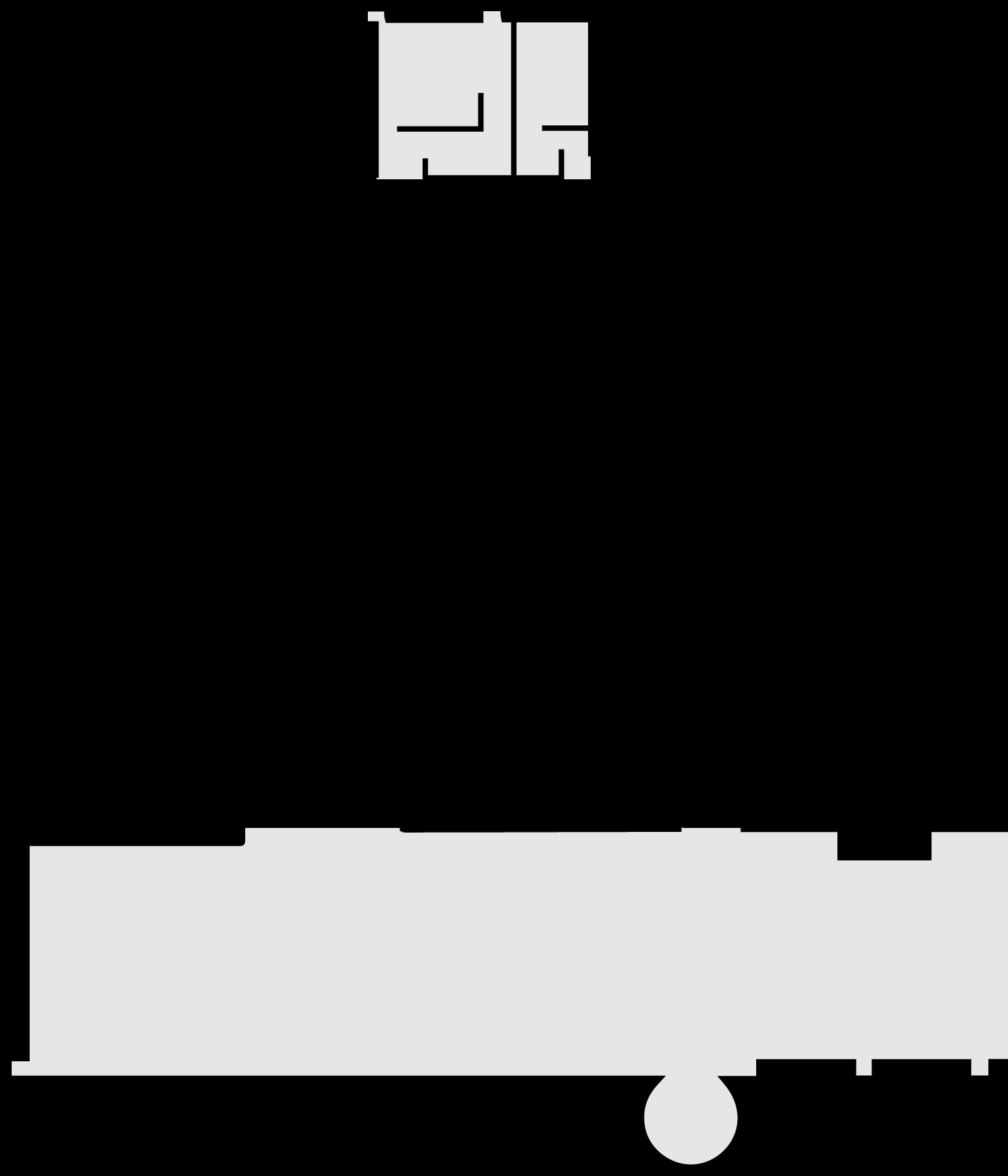
Riverview 3

Grand H
Riverview 2
Riverview 1
Youth Education Posters
Grand F
Grand G Grand E (Silent Auction) To 1st Floor Lobby
Grand C


Grand B
Grand D
Grand A
Registration
Main Hall / Sponsor Exhibition
Meeting Area
As part of the National Association of Conservation Districts’ annual poster contest, students across Wisconsin designed artwork around this year’s theme: "Home is Where the Habitat Is"
The creative posters on display are county and area winners, competing for the state title! Vote for your favorite—our state champions will move on to compete in their age group for national honors at the NACD meeting.

Voting begins Wednesday at 1:30 PM and closes Thursday at 3:00 PM.
Posters are on display in the Main Hall.
Ballots and judging guidelines are provided in your registration folder.
Bidding is open NOW and ends Thursday at 5:45 PM.
Pick up your items between 7:30-10:30 AM on Friday.
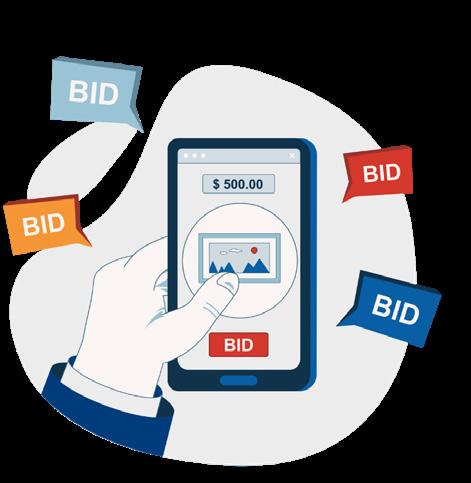
Stop by Grand E to see the amazing items up for grabs, and then use your phone to start bidding! Need help with bidding—just ask a staff member or find instructions in the Conference Hub!
If you will not be here on Friday morning to pick up your items, please make arrangements with someone to do so on your behalf. All proceeds benefit our Youth Education programs.
Annual Raffle
All cash prizes - $500, $300, $200, and five $100 prize - winners will be drawn!
BUY TICKETS: Grand E during open hours
DRAWING: End of the Business Meeting
50/5 0 R affle
BUY TICKETS: During Thursday's Social Hour

DRAWING: During Thursday's Awards Banquet

1for$3 4 for $10
All proceeds benefit our Dan O'Connell Member Training Scholarship Program.
LEVEL UP on Wednesday night with the Young Conservation Professionals Network. With a full menu of food and drinks available, we've got the perfect spot to continue conversations in a fun atmosphere.
Where: Player 2 Arcade Bar (219 N Washington St, Green Bay) When: Wednesday, March 5th, 6:00-9:00pm
Want company? Join the group walk departing from the hotel lobby at 5:45 PM, or meet us there whenever!
Calling all Land Conservation Committee members! Grab your breakfast and bring it to the tables in the Meeting Area (see map) for a morning of networking with fellow LCC and WI Land+Water Board members. Thursday | 7:00-8:00 AM | Meeting Area


Find the reserved tables during breakfast to meet and connect with other county conservationists across the state. Thursday | 7:00-8:00 AM | Grand D
The generous support of our sponsors allows us to provide attendees with a rich and diverse program filled with engaging presentations, interactive sessions, and networking opportunities. We want to express our deepest thanks for their support and for being a part of this exciting event.
Many sponsors are exhibiting in the Main Hall, and we invite you to connect during the conference and learn about their commitment to conservation.





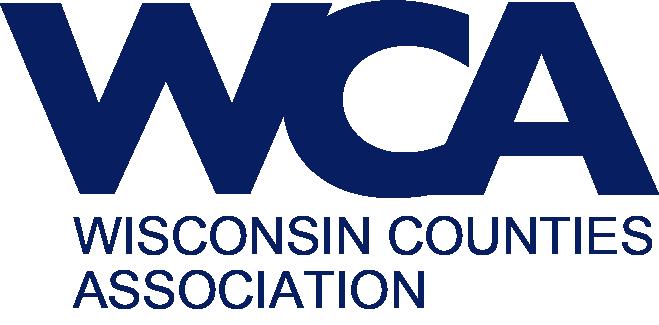
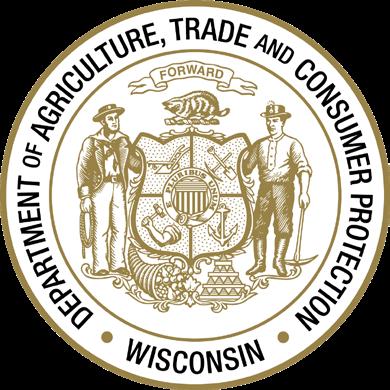

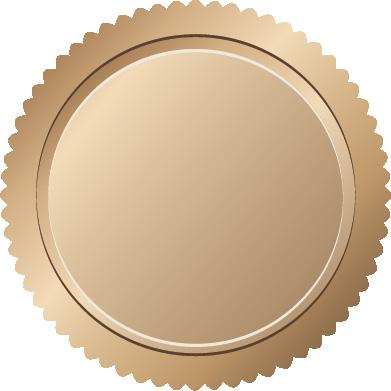
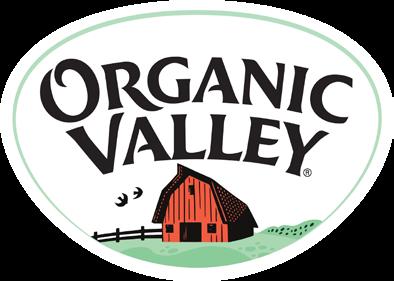


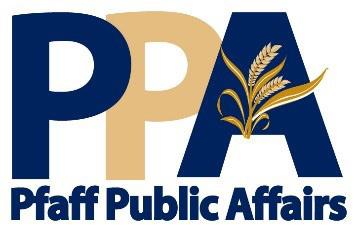


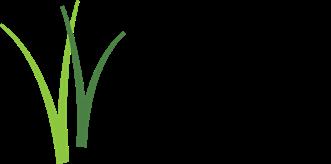

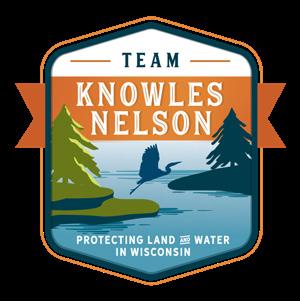



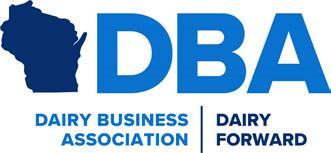

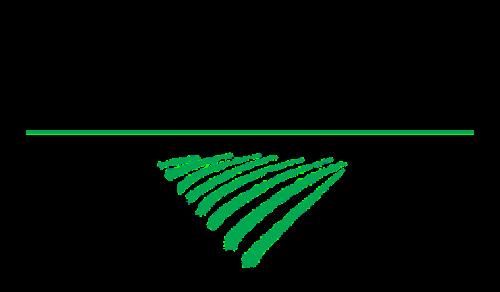




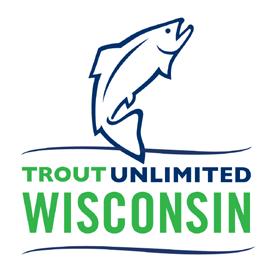
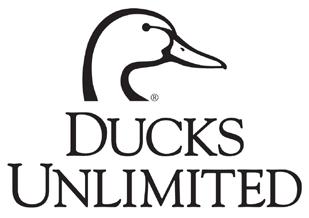



8:30 AM - 11:00 AM
9:00 AM - 11:00 AM
11:00 AM - 12:00 PM
11:30 AM - 1:30 PM
WI Land+Water Board Meeting
▶ Riverview 3
Conference Registration and Silent Auction Item Drop-off
▶ Grand E
Lunch Buffet
Grand D
Welcome and Keynote
▶ Grand D
Welcome
Matt Krueger
Executive Director, WI Land+Water
Winning Youth Speeches
Geo Rutherford
Artist, Author, Teacher, Content Creator
Keynote Address
That's What I Meme:
Understanding Generational Influences & Characteristics
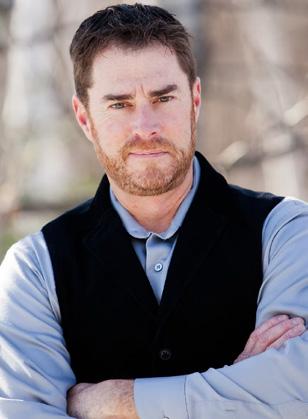
Brad Gingras, Superior Strategies, LLC will address some of our most pressing workplace questions: Can Millennials ever show up on time? Why are Boomers so averse to change? Our youngest employees won’t even pick up the phone! Generational conflict in the workplace is nothing new, but the gaps between age groups seem wider than ever. Brad will explore the key influences, traits, and motivations of today’s workforce generations—offering strategies to bridge divides, foster understanding, and improve collaboration. No matter your age or experience, you’ll gain practical insights to better connect with colleagues and individuals in all areas of life. Expect an entertaining and eye-opening discussion on what makes each generation tick!
1:30 PM - 7:00 PM
1:45 PM - 2:45 PM
2:45 PM - 3:15 PM
3:15 PM - 4:15 PM
5:00 PM - 6:00 PM
4:15 PM - 7:00 PM
OPEN: Silent Auction, Sponsor Hall & Poster Contest Judging
BREAKOUT SESSIONS
▶ Details on next pages
Refreshment Break
▶ Grand E
BREAKOUT SESSIONS
▶ Details on next pages
Conservation Film Fest
▶ Grand D | Details on pg. 15
Social & Sponsor Hour
▶ Grand E
Dinner arrangements are on your own! For dining options, visit downtowngreenbay.com/explore/dine
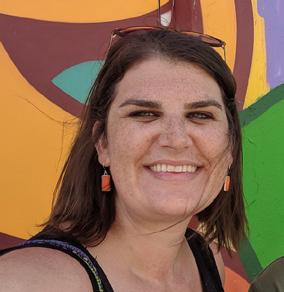

Meet Geo Rutherford, this year’s Speaking Contest Emcee! An artist, author, and educator from Sauk City, Geo has gained a massive following on TikTok and Instagram for her creative and educational content. Her debut book, Spooky Lakes: 25 Strange and Mysterious Lakes that Dot Our Planet, explores the world’s most fascinating lakes through science, history, and art. The lakes featured in the book aren’t spooky because of ghosts or ghouls, but rather due to natural phenomena, scientific oddities, human interactions, environmental disasters, and the mysteries lurking beneath the surface. Purchase a copy and get it signed after Wednesday's opening lunch! georutherford.com
WEDNESDAY:
1:45 PM - 2:45 PM
Location: Riverview 2
Presenters: Adam Freihoefer, DNR and Amy Piaget, Dane Co. LWRD
Lots of rain + groundwater recharge + seepage lakes = flooding, oh my! With shifting climatic patterns, greater fluctuations in groundwater levels have been observed across Wisconsin. The increased precipitation can be a positive for groundwater recharge, but what happens when it impacts groundwater dependent surface waters? Between 2017 and 2020, many areas of Wisconsin observed the water table rise to levels that hadn’t been seen in nearly 100 years. Come learn about Wisconsin’s efforts to monitor groundwater flooding and hear a case study from Dane County on a seepage lake that has risen 17 feet! (1 Soil & Water Management CEU)
Location: Grand B-C
Presenter: Brad Gingras, Superior Strategies, LLC
It’s the hardest part of leadership or working with the public! Having difficult conversations is stressful, and anxiety-filled, but an essential responsibility for leaders and staff who advise or enforce policies with the public. This seminar tackles the multiple approaches that can (or should not) be used, strategies for positive results, scenarios, and common mistakes. Stop avoiding the inevitable and feel more confident after this engaging training. (1 Professional Development CEU)
Location: Grand F
Presenters: Jenny Pethan, WI Land+Water; Helena Tiedmann and Lauren Haydon, DNR
Wisconsin’s land and water resources require strategic planning to ensure that we are prepared to weather the changing climate and protect the high-quality water resources that make WI such a special place to live and work. This session will share relevant climate information and tools, watershed modeling and assessment data, and resiliency best practices for county-level planning. Presenters will highlight how these resources can be integrated into County Land & Water Resource Management Plans and provide examples of the technical assistance staff can provide. Come see how we can help with your next plan update and support healthy and resilient land and water management in your county! (1 Engineering PDH / 1 Soil & Water Management CEU)
CANCELLED - Partner Perspectives on the USDA NRCS Regional Conservation Partnership Program (RCPP)
Location: Grand G
Panelists: Craig Ficenec, Sand County Foundation; Kristin Schultheis, Milwaukee Metropolitan Sewerage District; Kyle Minks, Dane Co. LWRD; Pat Weber, American Bird Conservancy / Moderator: Jenn Chakravorty, WI RCPP Coordinator, NRCS
This panel discussion will dive into what it's like to manage an RCPP project from the perspective of a lead partner. Each RCPP project is unique, and panelists will have insights on managing projects with boundaries ranging from a single watershed to multiple states, where technical assistance is carried out through partner staff or NRCS planners, and with practice lists including a few to more than a dozen core practices (including entity-held easements). Geared toward prospective RCPP partners, bring all your burning questions! (1 Professional Development CEU)
Location: Grand H
Presenter: Alexander Latzka, Ph.D., DNR
This session will include presentations on current science and management of Wisconsin’s fisheries, including an overview of how Wisconsin fisheries are affected by climate change and how fisheries management can best adapt. (1 Professional Development CEU)
3:15 PM - 4:15 PM
Location: Riverview 2
Presenters: Ricardo Costa Silva, The Nature Conservancy; Heidi Keuler, Fish & Wildlife/ Fishers & Farmers partnership; Tina Barone, Dunn County LWCD; and Bob Micheel, Monroe County LCD
Discover how to leverage diverse funding opportunities to bring conservation projects to life. Representatives from The Nature Conservancy and Fishers & Farmers will share available funding options, while Dunn and Monroe Counties will showcase real-world examples of how they combined multiple funding sources to successfully complete their projects. (1 Professional Development CEU)
Location: Grand F
Presenter: Allan Braun, NRCS State Forester
Learn the basics of how NRCS helps private non-industrial forest landowners implement forestry practices. This session will include how they provide technical assistance, a brief overview of programs, and commonly used forestry practices. (1 Sustainability CEU)
Location: Grand H
Presenters: MaryJo Gingras, Ashland County Conservationist; Greg Coulthurst Door County Conservationist; and Kim Warkentin, Youth Education Director, WI Land+Water
Did you know that plastics and microplastics are everywhere—in our food, drinking water, lakes, soil, wells, clothes, and even within our bodies? Learn how the Plastic Recycling Committee (a subcommittee of the WI Land+Water Great Lakes Committee) is working to reduce plastic at work, in counties, communities, and homes. This session will cover committee initiatives, plastic-free changes at the county level, findings from a recent Emergent Contaminant Study on PFAS and microplastics in wells, and outreach and education efforts to reduce plastic use in communities.
(1 Professional Development CEU)
Location: Grand B-C
Presenters: Ben Dufford and Travis Tulowitzky, Bayfield County LWCD; Heather Palmquist, Iron County LWCD; Stacy Dehne, DATCP; Jon Simonson, DNR; and Chris Collier, Trout Unlimited
This session will cover many topics, including dewatering challenges with crossings, “back to the drawing board” to redesign a project when flooding changes the stream, sharing the delta dump redesign from the 2018 flood, financial benefits to improving crossings with bigger structures, the current efforts in Forest County using FEMA hazard mitigation funds, and the engineering end of planning. Bring your examples and questions for discussion! (1 Engineering PDH / 1 Soil & Water Management CEU)
Location: Grand G
Presenter: Dani Santry, Water Resource Specialist, Calumet County LCD; Kristin Teston, Communications Director, WI Land+Water; and Michael Hook, Statewide Training Coordinator, WI Land+Water
Are you ready to branch out and transform your conservation outreach? Join members of the WI Land+Water Outreach Committee as they reveal how Artificial Intelligence (AI) tools can streamline the flow of your writing and communication efforts. From drafting impactful newsletters to crafting compelling social media posts, this session will show you that anyone can be a wordsmith with the right tools. Whether you're looking to cultivate creativity or prune inefficiencies from your workload, you’ll leave inspired and equipped to let your outreach take root and flourish.
(1 Professional Development CEU)
5:00 PM - 6:00 PM
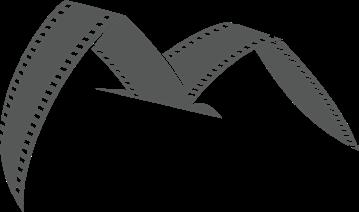
Grab a drink and snack and join us in Grand D for this award-winning film, which has over four million views!
Our soils support 95% of all food production, and by 2060, our soils will be asked to give us as much food as we have consumed in the last 500 years. They filter our water. They are one of our most cost-effective reservoirs for sequestering carbon. They are our foundation for biodiversity. And they are vibrantly alive, teeming with 10,000 pounds of biological life in every acre. Yet in the last 150 years, we’ve lost half of the basic building block that makes soil productive. The societal and environmental costs of soil loss in the United States alone are now estimated to be as high as $85 billion every single year. Like any relationship, our living soil needs our tenderness. It’s time we changed everything we thought we knew about soil. Let’s make this the century of living soil.
Watch the film trailer by scanning the QR code to view the trailer in the Conference Hub!

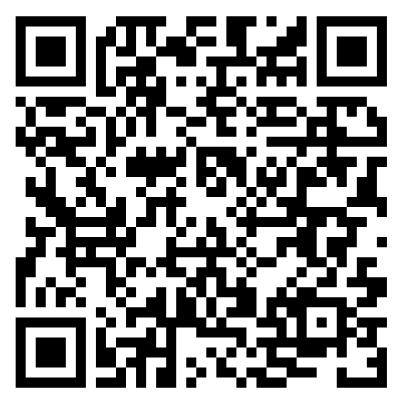
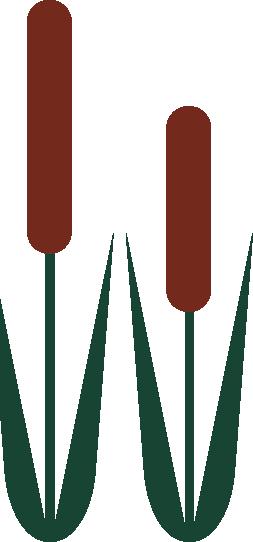
Scan for info about programming, conference events, sponsors, and more!
THURSDAY:
6:30 AM - 8:00 AM
7:30 AM - 6:00 PM
8:00 AM - 9:15 AM
9:15 AM - 9:45 AM
9:45 AM - 11:00 AM
11:00 AM - 12:45 PM
Breakfast | Meet & Greets
▶ Grand D
OPEN: Conference Registration, Exhibits, Silent Auction
3:00 PM: Poster Judging Ends
BREAKOUT SESSIONS
▶ Details on next pages
Refreshment Break
▶ Grand E
BREAKOUT SESSIONS
▶ Details on next pages
Luncheon | Keynote
▶ Grand D
For the Land and Its People: The Importance of Soil Science in a World on Fire

Nic Jelinski, Associate Professor at the University of Minnesota will delve into the critical role of soil science in conservation. As a pedologist (someone who studies the formation, characteristics, and distribution of soils), his work focuses on understanding soil variability, the relationship between soils and landscapes, and how soils respond to land management practices and environmental changes.
1:15 PM - 2:30 PM
2:30 PM - 3:00 PM
3:00 PM - 4:15 PM
4:15 PM - 6:00 PM
6:00 PM - 8:15 PM
BREAKOUT SESSIONS
▶ Details on next pages
Refreshment Break
▶ Grand E
3:00 PM: Poster Judging Ends
BREAKOUT SESSIONS
▶ Details on next pages
Social, Exhibits, 50/50 Raffle
5:45 PM: Silent Auction Ends
Dinner & Awards Ceremony
▶ Grand D

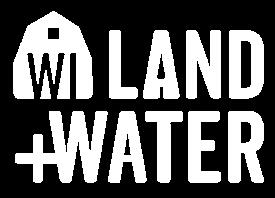
Hosted by Alan Barrows
Made possible thanks to the generous support of USDA-NRCS
Friend of Conservation
Outstanding Land Conservation Committee Member
Outstanding Conservation Employee | Technician/Planner
Outstanding Conservation Employee | County Conservationist
Brad Matson Youth Education Award
Conservation Legacy Award
Conservation Farm Family of the Year
Poster Contest Award Winners
8:00 AM - 9:15 AM
Location: Riverview 1
Presenter: Nic Jelinski, Associate Professor, University of Minnesota
This talk examines eroded soils through three lenses: spatial distribution, quantification methods, and environmental impact. Using USDA-NRCS soil survey data, we show that eroded soils cover at least 463,000 km² of the contiguous U.S., concentrated in the Upper Midwest and Southeast. A novel application of meteoric ¹⁰Be, alongside isotopic methods and models, reveals post-settlement erosion rates nearly two orders of magnitude above pre-settlement levels. These accelerated erosion rates have profound consequences for soil quality and agricultural productivity, including significant losses in soil organic carbon stocks, changes in carbon composition, and reduced crop yields. Our findings highlight the critical importance of soil conservation practices and provide insights into erosion processes that can inform sustainable land management. (1 Soil & Water Management CEU)
Location: Riverview 2
Presenters: Arthur Watkinson, DNR; Tracy Arnold, Portage County LWCD; and Mitch McCarthy, Sauk County LRE
As conservationists, we have a daunting task to protect our lakes and rivers in WI. Hear about two resources available to help you prioritize, implement, and fund shoreline BMPs where they will be most beneficial to water quality and habitat! Attendees will learn about the Healthy Lakes & Rivers best practices and how to create a successful grant program, followed by a case study that adapted DNR Shoreland & Shallows Habitat Monitoring Field protocol into a GIS app that helped them to evaluate shoreline health and identify best practices. By building upon these two successful tools, you will learn the skills to “build a better mousetrap” and save yourself valuable time and resources! (1 Soil & Water Management CEU)
Location: Grand B-C
Presenter: Ben Uvaas, DNR / Moderator: Tina Barone, Dunn County LWCD
Practice investigating NR 151 compliance in a no-pressure atmosphere. Participants will be divided into groups to navigate made-up farm scenarios. Experienced, new, and all staff in between are encouraged to join the conversation. (1 Engineering PDH / 1 Professional Development CEU)
Location: Grand F
Presenter: Sarah Diedrick-Kasdorf, Wisconsin Counties Association
Session Sponsor: Wisconsin Counties Association
This session will continue discussions that should be undertaken regularly–what are the roles and responsibilities of board members, staff, and constitutional officers in county government. Too often, disputes arise surrounding who makes what decisions and when, rather than focusing on the important policy and operational decisions impacting our citizens. Join us for this session where we will take an in-depth look at county government organizational structure. (1 Professional Development CEU)
Follow the Leader: Untapping the Core Competencies of Leadership & Common Mistakes Leaders Make
Location: Grand G-H
Presenter: Brad Gingras, Superior Strategies, LLC
Leadership, while we all know the concept and purpose, doesn't come naturally for many. In fact, very few. However, the greatest leaders the world has seen have had similar characteristics that have led to their success. This interactive session explores what those leaders share, while also identifying the common mistakes that many leaders continue to make. (1 Professional Development CEU)
9:45 AM - 11:00 AM
Technical Roundtable #1: Updates on Standards and Design Tools for Conservation Practices
Location: Grand B-C
Presenters: Adam Moris, USDA-NRCS; Stacy Dehne, DATCP; and Ketty Clow, Chippewa County LCFMD
This session will give an overview of updated design tools and standards such as the revised Vegetated Treatment Area (VTA) standard and the associated WinSRFR modeling tool. Also covered will be the new Water and Sediment Control Basin spreadsheet, the uses and limitations of StreamStats, and other hydrology design tools for conservation practices. (1 Engineering PDH / 1 Soil & Water Management CEU)
County Ordinances: Implementation, Compliance, and Enforcement
Location: Grand F
Presenters: Amy Piaget, Dane County LWRD; Lynda Schweikert, Chippewa County Land Conservation & Forest Management Dept.; and Liz Usborne, DNR
Oh, because who wouldn't want a lovely county ordinance just sitting around, doing absolutely nothing? Implementation, compliance, and enforcement? Sounds like a complete joy ride! I mean, who doesn't dream of endlessly following the rules, right? Join Dane County, Chippewa County, and DNR nonpoint source staff as they discuss methods to implementing their ordinances. (1 Professional Development CEU)
Location: Riverview 1
Presenter: Emily Walz, MD, Psychiatrist, Sixteenth Street Community Health Center
Climate change has created significant feelings of anxiety and dread throughout the population. This presentation will focus on the potential mental health effects of climate change, using concepts of eco-anxiety and climate distress. It will explore populations who might be particularly vulnerable to mental health effects of climate change. Finally, the presentation will use Susi Moser’s framework of adaptation, resilience, and transformation to discuss some of the potential solutions for addressing eco-anxiety and climate distress. This session will also contain brief moments for personal reflection. (1 Professional Development CEU)
Location: Riverview 2
Presenters: Randy Jackson, PhD, UW Professor and Researcher of Agroecology; Nate Lawrence, PhD, Ecosystem Scientist at Savanna Institute; and Kyle Magyera, Local Government Outreach Specialist at Wisconsin Wetlands Association
This panel will focus on leveraging conservation practices as a powerful strategy for enhancing climate resilience in Wisconsin. The panelists will discuss climate adaptation strategies through an ecological lens while exploring practices such as agroforestry, prairie restoration, and wetland management. Participants will explore how these solutions can be tailored to Wisconsin’s diverse ecosystems, offering a holistic, effective approach to addressing the state’s climate challenges. (1 Sustainability CEU)
the Wisconsin Law of Surface Water Runoff and Drainage
Location: Grand G-H
Presenters: Paul Kent and Jane Landretti, Attorneys, Stafford Rosenbaum LLP
Session Sponsor: Clean Wisconsin
This session begins with an overview of Wisconsin Common Law, covering diffuse vs. navigable surface water and the reasonable use doctrine. Wisconsin Statutory Law will then be examined, including Drainage Districts, farm drains, and watercourse obstructions. The session concludes with a discussion of current issues, such as the interaction between drainage laws and wetland regulations, drainage and dredging operations, and applications to farm tiling and conservation practices. (1 Professional Development CEU)
1:15 PM - 2:30 PM
Location: Grand B-C
Facilitators: Kyle Magyera and Stephanie Rockwood, WI Wetlands Association; Barton T. Chapman, P.E., DATCP; and Jeremy Freund, Outagamie County LCD
A continuation of the Hydrologic Restoration training series, attendess are encourage to watch previous webinars on our Conference Hub (scan QR on namebadge). Join to discuss geospatial data and desktop-based assessment tools used to evaluate upstream solutions to degraded hydrologic conditions, connections, and functions. This roundtable will promote a watershed perspective that can be utilized to understand the root causes of hydrologic degradation and changes in water movement. It will also feature examples of how desktop analysis can be scaled, from a site level to stream reach and catchment scales, to prioritize and scope hydrologic restoration projects. (1 Engineering PDH / 1 Soil & Water Management CEU)
Aanji-bimaadiziimagak o’ow aki (the world is changing): Insights from the Great Lakes Indian Fish & Wildlife Commission
Location: Grand F
Presenter: Rob Croll, Policy Analyst-Climate Change Program Coordinator, Great Lakes Indian Fish & Wildlife Commission
Session Sponsor: Wisconsin Coastal Management
Gain a deeper understanding of the Great Lakes Indian Fish & Wildlife Commission (GLIFWC), Ojibwe treaty rights, and the connection to climate resilience. Explore practical strategies for county and state agency staff to build meaningful and respectful partnerships with tribal communities. This session will provide insights into working collaboratively, fostering mutual understanding to address shared conservation goals, and incorporating Indigenous Knowledge into climate resilience and resource management. (1 Professional Development CEU)
Investing in Our Youth Education Programs: The Key to Engaging Our Youth in Conservation Issues and Jobs
Location: Riverview 1
Presenters: Haillie Passow, Youth Education Committee Chair; Tracy Arnold, Former Youth Education Committee Chair; and Kim Warkentin, Youth Education Director, WI Land+Water
The future of county conservation depends on engaging the next generation. With many conservationists retiring, it’s crucial to invest in youth eduction programs that highlight conservation’s importance and career opportunities. Explore WI Land+Water Youth Education Committee’s core programs and how counties can get involved. Committee members will share successful strategies for integrating these programs locally and inspiring future conservation leaders. (1 Professional Development CEU)
Location: Riverview 2
Presenters: Collin Driscoll, Wisconsin Counties Association; Shawn Pfaff, Pfaff Public Affairs; and Matt Krueger, WI Land+Water Executive Director
A new state legislative makeup provides an opportunity to advance conservation priorities in Wisconsin. Get an insider's look at the lay of the land in the Capitol and the Governor's administration, learn about WI Land+Water's conservation priorities, and gain an understanding of how conservationists can best advocate for these priorities. (1 Professional Development CEU)
Location: Grand G-H
Presenters: Sherrie Gruder, Extension Sustainable Design and Energy Specialist and Diane Mayerfeld, Extension Sustainable Agriculture Specialist
In the transition to renewable energy, utilities are replacing coal plants with large-scale renewable energy systems and battery storage to capture substantial cost savings and climate and health benefits. In Wisconsin, over the past 5 years, large-scale renewable energy and battery storage projects have been built or approved in 22 counties, and many more are expected. It is projected that large-scale renewable energy will occupy approximately 3% of Wisconsin’s harvested cropland by 2050 in a carbon-neutral grid. This session will focus on what communities and landowners can do to prepare and plan for renewable energy siting and development. We will share resources and tools, from including renewable energy in comprehensive plans to exploring agrivoltaics. (1 Sustainability CEU)
3:00 PM - 4:15 PM
Location: Grand F
Presenter: Kevin Masarik, Director, Center for Watershed Science and Education, UW-Stevens Point & UW-Madison Division of Extension
This session will demonstrate two online resources for rural landowners and organizations looking to provide well water outreach and educational assistance. Private well owners are largely responsible for making the day-to-day management decisions when it comes to operating their household water system. Water WELLness is a new online course designed for rural landowners to learn more about owning and operating a private well that covers well basics, testing, and interpreting results. The WI Well Water Viewer is a useful tool to learn more about typical well water quality at county, town, watershed, or neighborhood scale. The Viewer is an interactive mapping platform that provides access to aggregated data for 14 different parameters important to health, aesthetics, and water quality. (1 Professional Development CEU)
Location: Riverview 1
Presenter: John Shutski, Extension Agricultural Health Specialist, UW-Madison
This presentation provides an overview of the key health and safety issues that farmers and agricultural service providers encounter in Wisconsin. We will discuss a "Top Seven" list of hazards, along with protection strategies and communication techniques. These tools help improve interactions with farmer stakeholders while reducing personal and professional risk on the job. (1 Professional Development CEU)
Location: Grand B-C
Presenters: Amy Piaget, Dane Co. LWRD; Lindsey Hartfiel, UW Extension; Tom Nedland, DNR; and Travis Buckley, DATCP/ Moderator: Tina Barone, Dunn County LWCD
Drain tile in agricultural settings can have impacts on water quality and quantity. A subcommittee of the Leg/Admin and Tech Committees was formed to work through an issue brief submitted by the Lake Michigan Area Association to look at concerns related to tile drainage. This session will focus on the work of that committee to date including updates to resources, permitting overview, and treatment systems. (1 Engineering PDH / 1 Soil & Water Management CEU)
Location: Riverview 2
Panelists: Jason Cavadini, UW-Madison Division Extension; Brooke Bembeneck, Marathon Co.; Derrick Raspor, NRCS; Serge Koenig, Sauk Co.; Patrick Bula, Sauk Co.; and Laura Paine, Grassland 2.0, GrassWorks/University of Wisconsin CALS
Session Sponsor: Acres U.S.A.
Hear stories from Wisconsin grazing experts with a combined experience of over 60 years. Learn how they got their grazing networks started; unique funding opportunities to get more perennials on the landscape; how multiple counties can collaborate on grazing projects; how to pass the baton to the next generation of grazing experts; and more. Come with your grazing questions! (1 Sustainability CEU)
Wisconsin Weather Weirdness: Understanding Wisconsin Climate Trends, Impacts, and Options for the Road Ahead
Location: Grand G-H
Presenters: Martha Sample, Climate Adaptation Specialist, Northern Forests Climate Hub and NIACS; and Steve Vavrus, Climate Change Expert, Nelson Institute for Environmental Studies, UW-Madison; and Josh Bendorf
Wisconsin weather is notorious for being dynamic, rapidly changing from one end of the spectrum to the other. But is Wisconsin weather becoming more variable over time, and how are the “normals” shifting? For those who manage agricultural and forested lands, how will these changes impact their livelihood? In this session, climate experts from the state and Midwest region will provide insight into these questions. Attendees can expect time to ask questions and share stories. (1 Professional Development CEU)
6:30 AM - 8:00 AM
7:30 AM - 10:30 AM
8:00 AM - 9:00 AM
9:15 AM - 10:15 AM
10:15 AM - 10:45 AM
10:45 AM - 11:45 AM
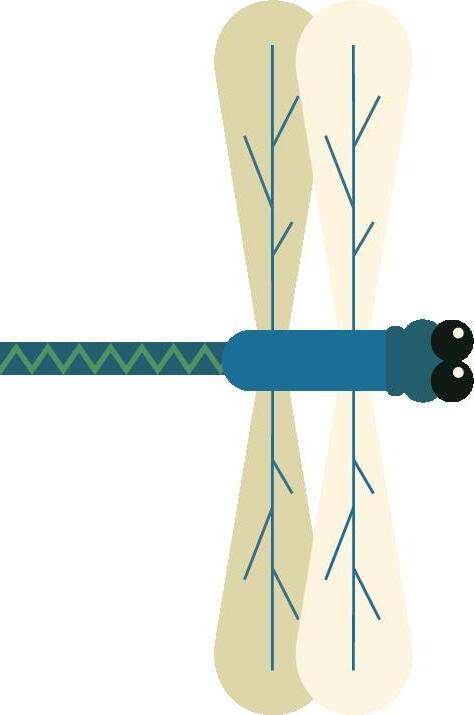
Breakfast
▶ Grand D
Conference Registration & Silent Auction Item Pickup
▶ Grand E
BREAKOUT SESSIONS
▶ Details on next pages
BREAKOUT SESSIONS
▶ Details on next pages
Refreshments & B usiness
Meeting Registration
▶ Main Hall
B usiness Meeting & Raffle Drawing
▶ Grand D
thank you WI LAND+WATER WOULD LIKE TO SAY
to the participants, sponsors, and agency partners for helping to make our 72nd Annual Conference possible.
We hope to see you again next year!
73rd Annual Conference March 4-6, 2026
Chula Vista Resort Wisconsin Dells, WI

8:00 AM - 9:00 AM
Location: Grand B-C
Presenter: Kevin Erb, University of Wisconsin-Extension
Little changes can make a big difference and reduce risk. Learn about an examination of 15 years of manure spill and incident data, which focuses on the root causes of manure spills/incidents and common sense changes to reduce the number, severity, and impact. (1 Nutrient Management CEU)
The State of Wake-Enhanced Watercraft in Wisconsin
Location: Grand H
Presenters: Lt. Darren Kuhn, Wisconsin DNR Boating Law Administrator; Meleesa Johnson, Wisconsin's Green Fire Exec. Director; and Cody Kamrowski, Wisconsin Wildlife Federation Exec. Director
Boats capable of generating enhanced wakes are creating literal and figurative waves across the state. Learn more about the topic and how it is being addressed at the state and local levels, as well as some of the related issues that have spurred the development of a growing coalition that is in search of solutions. (1 Professional Development CEU)
Location: Grand F
Presenter: Ashly Steinke, Wisconsin Grassland Ecologist for Audubon Great Lakes
Ashly will introduce the Audubon Conservation Ranching (ACR) program and provide an update on how the first full year has developed in Wisconsin, including updates on numbers and locations of certified and perspective farms, and results from grassland bird monitoring that occurred at farms in WI and MN during this past breeding season. Focus will be on successes of grassland birds detected during monitoring and management practices and/or habitat modifications that have changed on farms to benefit grassland birds. Exciting updates will be revealed, including an expansion of the ACR program into Central and Northwestern Wisconsin and Iowa, and new funding available through Audubon to help landowners with habitat improvement projects and incentives to reward landowners for harboring populations of focal grassland bird species. (1 Sustainability CEU)
Location: Grand G
Presenters: Dustin Ladd, Juneau County LWRD; and Laura Mortimore, Orange Cat Community Farm
In 2023, Juneau County LWRD and the ADRC of Eagle Country Juneau County applied for and received the Local Food Community Partner Grant through DATCP. The county partnered with 13 local farms to host 29 weeks of pop-up community events, distributing over 38,000 lbs of local food throughout Juneau County. Join us to learn about the journey of building a local food community. (1 Professional Development CEU)
Location: Riverview 2
Presenters: Max Grueneberg, Calumet County Land Information Office; and Kyle Andreae, Wood County LWCD
Drones are transforming many of our county services. Join us as we explore drone requirements, software, and equipment. Discussion will continue with drone use (FPP, nonmetallic mines, and construction sites) and drone interfacing (ESRI and AutoCAD). (1 Professional Development CEU)
9:15 AM - 10:15 AM
Location: Riverview 2
Presenter: Zach Raff, USDA Economic Research Service
This session will examine the market and non-market benefits and costs of conservation staffing, policy, and regulations. In particular, we will monetize the outcomes that result from environmental protection or degradation, while discussing policy implications resulting from these activities. (1 Professional Development CEU)
Aquatic Invasive Species in Wisconsin Lakes: New insights and Lessons Learned
Location: Grand H
Presenter: Jake Vander Zanden, Director, Center for Limnology, UW-Madison
Recent research findings about aquatic invasive species in Wisconsin's lakes will be discussed, as well as their spread and impacts, and what it all means for lake health and lake management in a changing world. (1 Professional Development CEU)
Location: Grand B-C
Presenters: Chris Olds, DNR; Justin White, USDA-NRCS; Paul Backhaus, Washington County LRD; and Matt Woodrow, DATCP
Session Sponsor: DATCP
Conservation projects sometimes fall within areas designated as floodplains. These projects need additional consideration, design documentation, permitting and often floodplain modeling. This session will provide an overview of floodplain terminology, requirements for design and permitting (e.g. Zone A vs. Zone AE), and answer questions to help with implementation of conservation projects in floodplains. (1 Engineering PDH / 1 Soil & Water Management CEU)
and
Location: Grand G
Presenters: Sarah Yang, Ph.D., Wisconsin Dept. of Public Health, and Mimi Johnson, DNR
This session will cover a high level overview of what PFAS is, how people are exposed to PFAS, and the known health effects associated with exposure to PFAS. The presentation will also describe what regulatory and policy actions have been taken by in WI to address PFAS. (1 Soil & Water Management CEU)
Bringing a National Estuarine Research Reserve (NERR) to the Bay of Green Bay: Partnerships, Programs, and Opportunities
Location: Grand F
Presenter: Emily Tyner, Director of Freshwater Strategy, UW-Green Bay
The University of Wisconsin-Green Bay is excited to be leading the designation of a new National Estuarine Research Reserve (NERR) on the bay of Green Bay. The NERR system is a national network of 30 sites across the coastal US, including the Great Lakes, designed to protect and study estuaries and their coastal wetlands. Reserves have a place-based focus in four key areas: research, education, stewardship, and training. This session will share information about the NERR system, the history of Green Bay's designation efforts, and the partnerships and opportunities that have emerged during designation to support the NERR’s future research and education programs. (1 Professional Development CEU)



